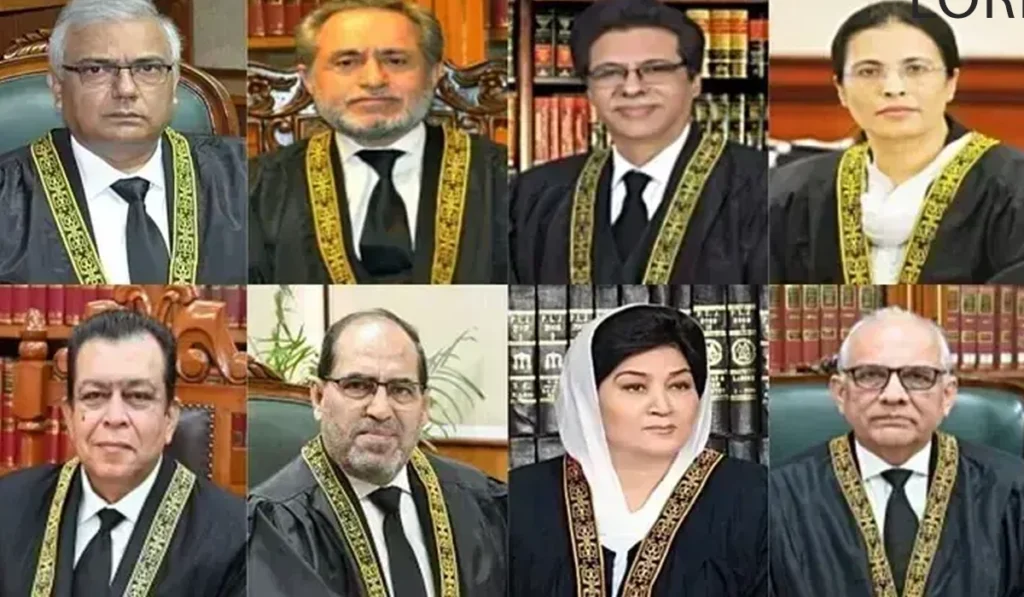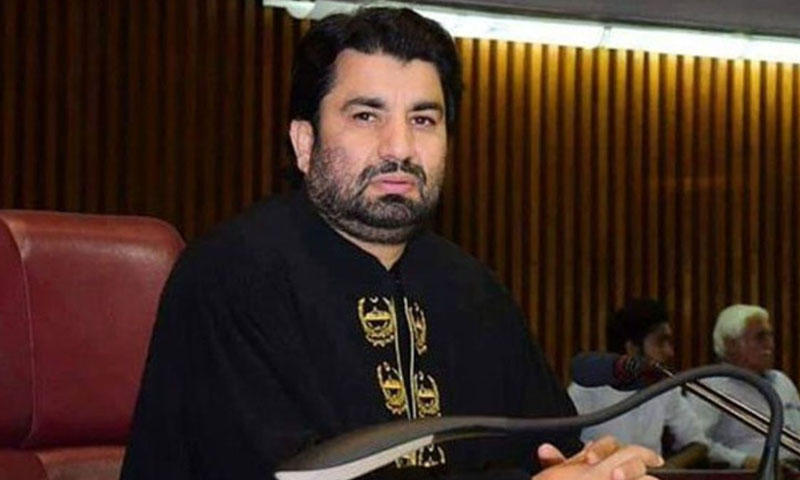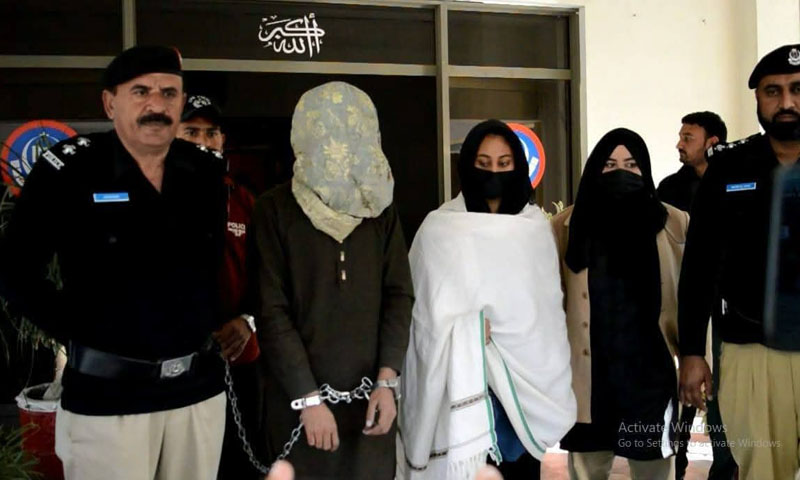- Web Desk
- Feb 09, 2026
Who will decide if amendment forming constitutional bench is challenged: Justice Mandokhail
-

- Web Desk
- Oct 13, 2025

ISLAMABAD: The Supreme Court’s constitutional bench resumed hearings on petitions filed against the 26th Constitutional Amendment on Monday, where an extensive discussion took place over whether a full court should be constituted to hear the matter.
A full court comprising eight judges, headed by Justice Aminuddin Khan, heard arguments from Advocate Abid Zuberi — counsel for six former presidents of the Pakistan Bar Council. Zuberi’s arguments remained incomplete as the bench raised multiple constitutional questions regarding its jurisdiction and formation.
Justice Naeem Akhtar Afghan remarked that “whether you agree or not, Article 191 exists — the term ‘full court’ is not mentioned in it. Don’t you think that under Article 191, the judges of the constitutional bench themselves complete the full court?”
Justice Jamal Khan Mandokhail questioned, “If objections are raised over the very amendment that created this constitutional bench, then who will decide on it?”
During the hearing, Justice Mandokhail asked whether any political party had the right to demand the replacement of a bench, or whether the court was bound to make such changes. “Does any party want us to constitute a specific bench or assign particular judges?” he inquired.
Advocate Zuberi responded that no political party had the right to select a bench of its choice, adding that he had always sought the formation of a full court.
PTI challenges 26th constitutional amendment in SC
Justice Aminuddin Khan asked, “Why do you want a full court?” to which Zuberi replied, “Your own previous judgments say that a full court should hear constitutional matters.”
Justice Mandokhail asked how many judges were currently serving in the Supreme Court. Zuberi replied that there were 24, clarifying that he was not questioning the integrity of any judge.
Justice Ayesha Malik asked what his specific request was. Zuberi said that judges serving before the 26th Amendment should hear the case. Justice Mandokhail questioned why only pre-amendment judges should constitute the bench, noting that the chief justice himself was appointed under the 26th Amendment. “If the chief justice is a beneficiary of the amendment, can he sit on the bench?” he asked.
Zuberi replied that it was for the chief justice to decide whether to sit on the bench. Justice Mandokhail remarked that without the 26th Amendment, Justice Yahya Afridi would not have become the chief justice under seniority rules. “If we are beneficiaries, can we sit on the bench?” he asked.
Justice Muhammad Ali Mazhar questioned, “Then who will hear the case?” Zuberi replied that he had never said the sitting judges were beneficiaries.
Justice Mandokhail asked whether having eight judges hear the case would make the decision invalid, noting that whether eight judges sit or the full court does, the principle remains the same. “Do you believe the judges sitting on this constitutional bench will be biased?” he asked.
Zuberi argued that a full court brings the collective wisdom of all judges. Justice Ayesha Malik pointed out that Article 191(A) discusses benches, not a full court, while Justice Mandokhail maintained that a full court is also a type of bench — a view Justice Ayesha disagreed with.
The discussion then turned to whether the constitutional bench could direct the formation of a full court. Justice Mazhar questioned whether a constitutional bench could include judges not already part of it. Zuberi argued that the constitutional bench could pass a judicial order for the purpose, while Justice Mazhar responded, “We are the constitutional bench — and you are asking us to form a full court.”
Justice Mandokhail questioned how the bench could pass judicial orders if it lacked jurisdiction, adding that if the court found no jurisdiction, it would clearly say so.
Justice Ayesha Malik asked whether there was any restriction on issuing judicial orders, while Justice Mazhar asked whether the matter of the full court should be sent to the senior puisne judge if the Chief Justice recused.
Zuberi said the request would first go to the Chief Justice, and if he recused himself, then to the senior puisne judge. Justice Mazhar observed that the Chief Justice no longer had sole administrative authority over the roster.
Justice Mandokhail asked whether there was any real distinction between a bench and a full court and where the concept originated.
Zuberi responded that a full court comprises all available judges. “If you say there is no jurisdiction, how were previous full courts formed?” he asked.
Justice Musarrat Hilali questioned whether the constitutional bench — being a product of the 26th Amendment — could order the formation of a full court to hear a challenge against the same amendment.
Zuberi maintained that the constitutional bench could pass a judicial order to that effect. He added that since the Chief Justice was no longer the master of the roster, the administrative mechanism had changed.
Justice Mandokhail inquired whether the constitutional bench could direct the Chief Justice to include or exclude specific judges, to which Zuberi replied that it had the authority to issue such directions.
Justice Mandokhail later cautioned against selective reasoning, saying, “Do not pick and choose — speak on principle.”
Justice Ayesha Malik noted that there was no bar to forming a full court and that such benches had been constituted several times in the past, including in the Practice and Procedure case.
Justice Mandokhail observed that while the prime minister and cabinet form the government, the chief justice and judges collectively constitute the Supreme Court. “If you want a full court, why limit it? Why not a 24-judge full court?” he asked.
The court adjourned the hearing until Tuesday, directing Advocate Abid Zuberi to respond to the question of who should decide if objections are raised against the amendment under which the constitutional bench was formed.




